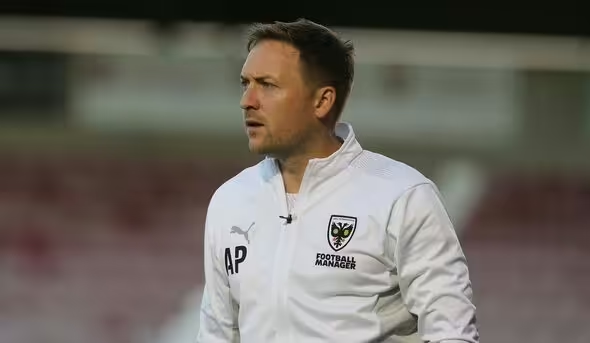Arsenal and Tottenham prove importance of key role as expert analyses set-pieces
Arsenal and Tottenham have underscored the critical role of set-piece specialists in their Premier League campaigns, highlighting the impact of expert analyses on dead-ball situations. Last season, Arsenal’s pursuit of the Premier League title was significantly bolstered by their proficiency in set-pieces, with specialist coach Nicolas Jover orchestrating a series of meticulously planned routines that resulted in 20 goals from such situations.
Conversely, Tottenham’s decision to part ways with their set-piece coach Gianni Vio had profound implications for their performance in these scenarios, according to Andy Parslow, a former set-piece coach at Swansea and Wimbledon. Parslow emphasizes Vio’s departure as stark evidence of the necessity for a dedicated set-piece coach.
“Tottenham had Gianni Vio [the previous season] and they were one of the top scorers from set-pieces in the division,” Parslow explains to Express Sport. “Since he’s gone they’ve fallen off a cliff when it comes to set-pieces in both boxes. Gianni Vio’s departure is one of the best adverts for having a set-piece coach that you can imagine.”
Read- Report: Premier League Clubs Compete for Highly-Rated Serie A Star
The success Arsenal enjoyed from set-pieces under Arteta’s guidance was pivotal in narrowing the gap with Manchester City, although they ultimately fell short of overtaking them in the league standings. Arteta entrusted Jover with the responsibility whenever Arsenal won a corner, stepping back to allow the specialist to direct proceedings with precise gestures and vocal instructions. This approach highlighted the club’s commitment to gaining marginal advantages through set-pieces.
“Ben White’s role at corners has been really well documented, trying to irritate the goalkeeper and stop him from claiming the ball,” notes Parslow of Jover’s systematic approach. “The other thing they’re really good at is their timing. The way they use signals is not necessarily to determine where the ball is going to go, like a lot of teams do.”
Read- Pierre-Emile Hojbjerg is set to depart Tottenham Hotspur before the upcoming season begins
Parslow elaborates on the strategic use of signals at Arsenal, where Jover’s signals trigger the attacking runners’ movements, ensuring they arrive in the box at precisely the right moment to challenge for the ball.
While the role of set-piece coaches has gained traction, Parslow acknowledges skepticism from some quarters, particularly in the media, questioning the necessity and value of such specialized coaching positions.
However, Tottenham’s manager Ange Postecoglou has publicly expressed his disinterest in dedicating training time to set-pieces. “I’m just not interested in it. I never have been,” remarked the Australian after his team conceded twice from corners against Arsenal in April. Parslow suggests that such dismissive attitudes may overlook potential advantages observed by rival clubs.
Indeed, prior to Jover’s arrival at Arsenal, the team managed only five goals from set-pieces in the preceding season, ranking among the lowest in the Premier League. In contrast, clubs like Manchester City, Aston Villa, Brentford, and Chelsea have invested in specialized set-piece coaching roles, while Liverpool has even advertised for similar positions, underscoring their recognition of the strategic benefits.
Parslow draws from his own experiences, notably at Swansea where he significantly enhanced the team’s effectiveness from attacking set-pieces by an impressive 500%. He acknowledges the challenges involved in transforming set-piece performances, particularly at Swansea where the team initially struggled in this aspect.
“Swansea was interesting because they were the worst in the country from attacking set-pieces, so it’s not as if you can suddenly transform them by waving a magic wand,” Parslow reflects. “These things take time and not only are you dealing with players who don’t relish the idea of set-pieces, but also they know how bad they were in the previous games.”
In summary, the contrasting fortunes of Arsenal and Tottenham highlight the pivotal role of set-piece specialists in modern football, emphasizing the strategic advantages gained through meticulous analysis and targeted coaching. As clubs increasingly recognize the potential impact of set-pieces on match outcomes, the role of dedicated coaches in this area continues to evolve as a crucial component of tactical preparation.

